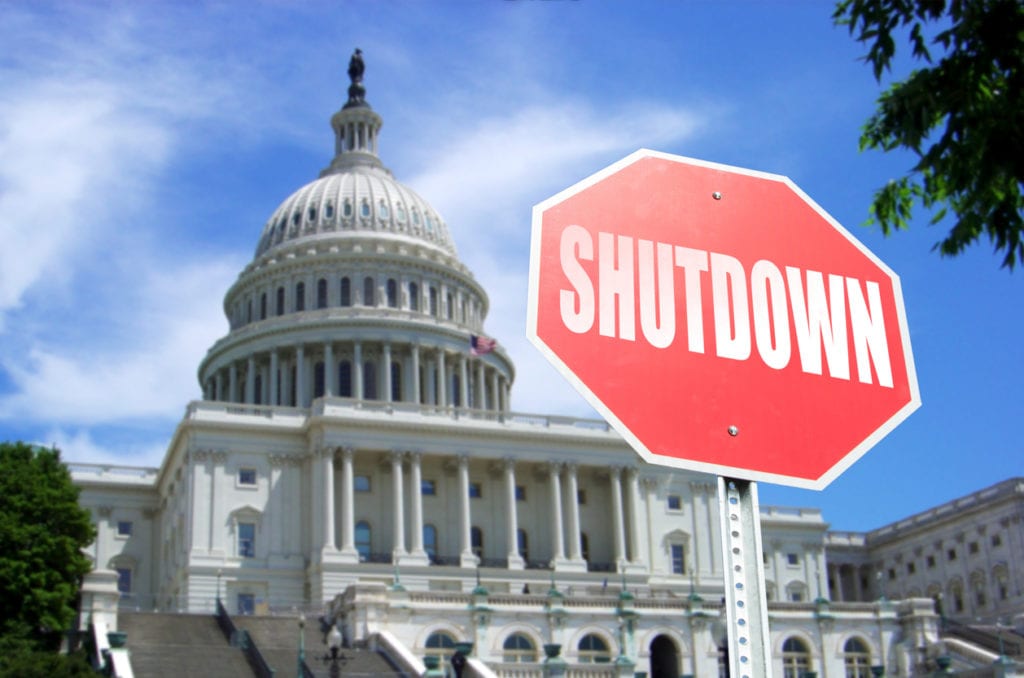The government shutdown has ended for now, which is a relief to thousands of government workers. However, with another shutdown looming, many banks have asked in this period of uncertainty: How can we help affected individuals? Since we cannot predict the future, we thought the following would provide some ideas.
The regulatory agencies have provided guidance on efforts to meet customers’ financial needs. Their guidance suggests that prudent efforts to meet customers’ financial needs that are safe and sound lending practices should not be subject to examiner criticism. The guidance provided by the agencies can be accessed through the following links:
- Federal Deposit Insurance Corp (FDIC) Guidance
- Federal Reserve Bank (FRB) Guidance
- Office of the Comptroller of the Currency (OCC) Guidance
There are two popular programs that banks have considered to help furloughed workers and the first is a “skip-a-payment” option for customers with existing loans. This option allows the customer additional time to make a loan payment and prevents them from being subject to adverse credit reporting.
Another option that has been offered is low- or no-interest short-term loan programs for consumers. These programs allow consumers to have additional funds to pay for their day-to-day expenses. Lenders have to evaluate compliance considerations in addition to safety and soundness concerns with these programs.
Let’s dive deeper into both options:
Skip-A-Payment Option
For a “skip-a-payment” option, there are several compliance considerations. First, the loan changes most likely will trigger a refinancing and the bank would have to provide new loan disclosures to the borrower. Regulation Z states that “the deferral of individual installments will not constitute a refinancing unless accomplished by the cancellation of that obligation and the substitution of a new obligation.” (12 CFR 1026.20(a) OSC (1) (i)) says lending staff needs to ensure that skip-a-payment agreements don’t cancel the original obligation. Of course, any new agreements should be reviewed by legal to confirm that it complies with state laws.
Another consideration for a “skip-a-payment” option is whether the bank is charging a fee for the option to skip a payment. Any additional fees are considered finance charges and must be disclosed to the borrower.
Additionally, the bank must comply with flood rules because the deferral of payments is considered a MIRE (make, increase, renew or extend) event which is subject to the flood regulations. The bank can rely on a prior flood determination if the determination meets certain requirements:
- The loan is made by the same lender.
- The determination is less than seven (7) years old.
- There were no verified map revisions or updates affecting the property since the original determination was made.
- The determination was recorded on a flood hazard determination form.
If the property is not in a flood zone, the bank can rely on the prior determination following the above bullet points. However, if the property is in a flood zone, a new flood hazard notice signed by the borrower is required. For a recurring skip payment option, a flood notice will apply to each extension that is made for any loan that is secured by property in a flood zone.
Finally, staff needs to ensure that criteria include equal treatment of borrowers for the “skip-a-payment” program and consistently adhere to the criteria to avoid fair lending concerns.
Low- or No-interest Short Term Loans
The offer of a short-term loan is the extension of new credit and to be consistent with the safety and soundness concerns, banks should establish criteria for whom the bank would approve for those loans. As with the “skip-a-payment” options, banks should fairly establish and apply the criteria to avoid fair lending problems.
Another consideration is whether the loan program is subject to finance charge rules due to interest or loan fees. If so, the loan is subject to Regulation Z and the bank needs to comply with and provide applicable Regulation Z disclosures such as a truth in lending (TILA) disclosure.
In addition to the Regulation Z disclosures, banks must provide disclosures for other regulations including flood rules for loans that are secured by real property or the military lending act (MLA) for consumer loans if they are unsecured or secured by personal property.
A final concern is ensuring that the loan isn’t structured as a payday loan or a title loan. Most banks don’t offer these loans but in providing an economic solution for furloughed employees, banks should ensure that creative options don’t inadvertently fall into these categories. The CFPB issued a final rule regarding applicable payday and title loans that requires banks to use certain ability to repay (ATR) methodologies and place restrictions on these loan types.
Individual states also have different definitions for what constitutes payday or title loans and prohibit these loans; consequently, banks should review their state laws or reach out to their state banking agencies to ensure that they don’t run afoul of state law.
If banks have established options for furloughed government employees, TCA is available to review these files to ensure that compliance considerations are addressed. We encourage you to contact TCA with questions when arranging lending programs to help those affected by the federal government shutdown.






